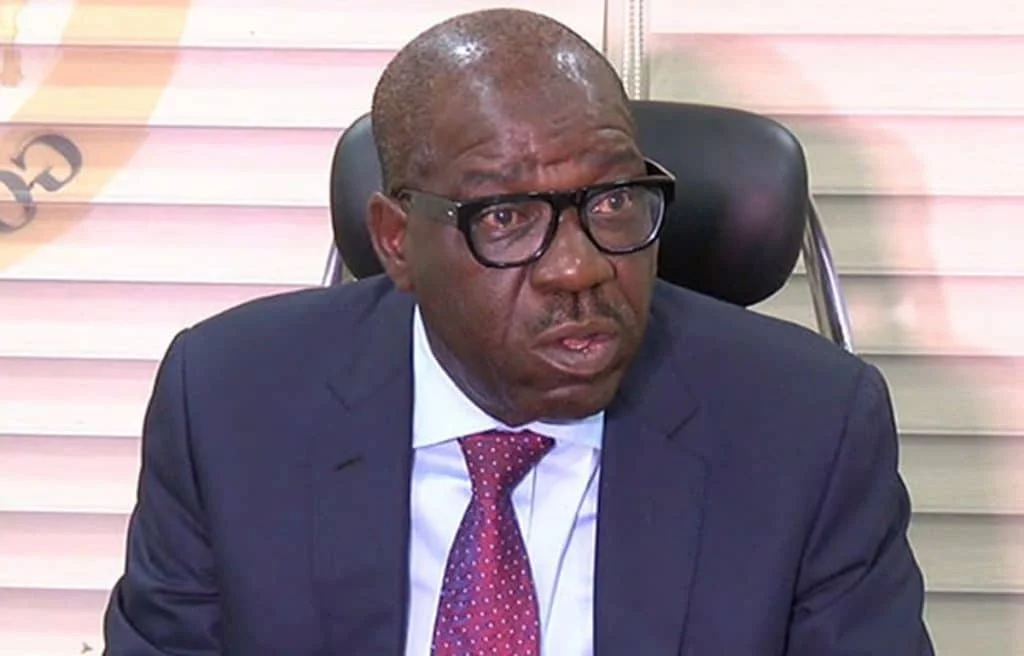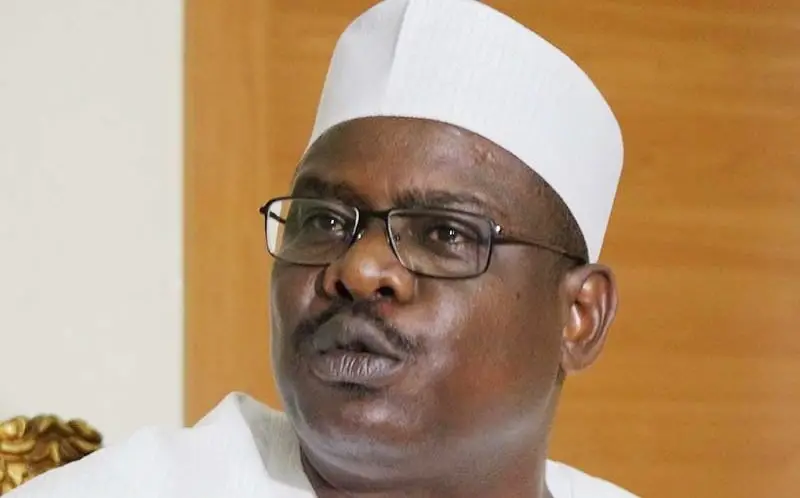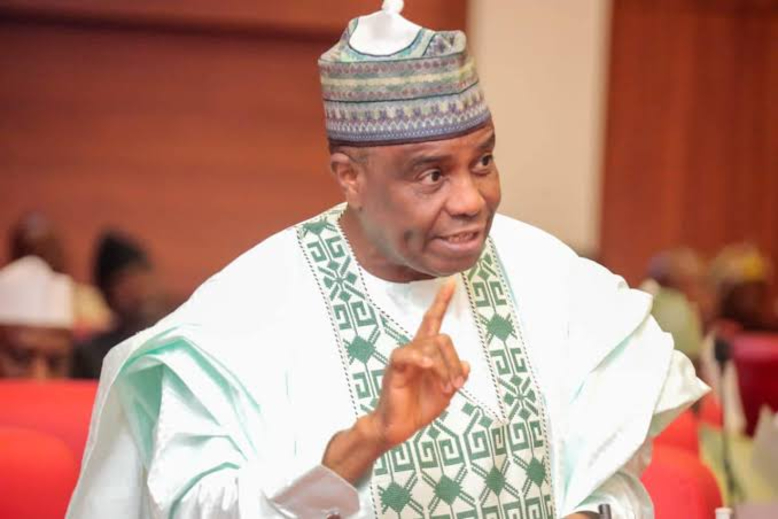News
Wande Abimbola @91: How an àbíkú decided to live (4)

Tunde Odesola
Longevity is a predominant gene in Ogunwande’s lineage. His grandfather, Akínsílolá Légbéjure, aka Agbólelelogunyábárá, inhabited the earth for more than a hundred years. His father, Iroko, a First World War soldier, also lived five years beyond hundred. Sangodayo, his mother, breathed her last at 112 while his eldest sibling, Ogunyoyin, was two years shy of 100 when death closed her eyes, and his second eldest sibling, Ogundiya, the Asipade, and Aàre Ìsègùn of Oyo, died suddenly on December 31, 2011 when he was 88 years young. For ’Wande, Life is a marathon of battles requiring the armours of endurance, courage and determination.
“My father died in 1971. His sight never dimmed, his awareness never waned, his memory remained sharp and he still walked to and fro the town hall in Akesan, a journey of two miles, to pay his monthly water bill. He walked longer distances to visit his friends. My mother was perceptive and fit until she died in 2007. The same thing applied to all my siblings,” Wande recalled in his soft voice.
When Wande finished his M.A. degree in the US, in 1966, and returned to Nigeria, two letters of employment were already waiting for him. He never applied for either of the two jobs, one of which was an appointment as a Research Fellow at the University of Ife (now Obafemi Awolowo University), and the other employment was as Lecturer II at the proposed Department of Yoruba Language, University of Lagos.
So, Ogunwande arrived at the crossroads of dual employment opportunities, fully aware of what he wanted but quite oblivious to the twists and turns of the academic marathon that lay ahead of him.
FROM THE AUTHOR: Wande Abimbola @91: How An Ábíkú Decided To Live (1) [OPINION]
“As I started moving up the ladder in my academic career, my mother would admonish me to be mindful of the son of whom I am. She would tell me not to steal or engage in any form of corruption,” Wande began. “I never stole a kobo all my life. What for? What am I going to do with millions?”
Wande later became a professor at Harvard, Boston University, Amherst College, University of Louisville, Kentucky; Smith College, Massachusetts; and Colgate University, among others. “I didn’t apply to be a professor in any of these universities. They made me a professor because they needed me. That’s how it should be. My elder brother, Ogundiya, never saw the inside of a classroom but when I took him to Boston for a year, he delivered lectures all over the US, with various institutions getting interpreters to explain his teachings. That’s how it should be. We should be teaching in our own language,” Ogunwande emphasised.
As an àbíkú, who was almost beheaded by an age-mate at 9, Abimbola came to an early realisation that life was a battle requiring the caution of the chameleon, the strength of the buffalo and the agility of the tiger. He soon knew that the life of an àbíkú was the tale of Ikún and Dèdè – the squirrel and the trap. Ikún n de dèdè, dèdè n de ikún.
Wande, the àbíkú, is tied down in the mortal realm by charmed intervention and prevented from going back to the underworld, but death lurks still, like a baited trap, seeking to crush the squirrel by the neck, just like Wande’s attacker sought to cut his neck with a machete. The Yoruba advise that gratitude should be the song of a victim who lost his cap instead of his life to death, “Iku to ba fe pa’ni, to ba si’ni ni fila, o ye ka dupe.”
FROM THE AUTHOR: Wande Abimbola @91: How an àbíkú decided to live (2)
“The boy who attempted to behead me ran away from the village for one month. In his absence, his father and mother, who were good and responsible people, apologised profusely. We became ‘friends’ again when I recovered from my illness. Needless to say, I was never too close to him, and I never trusted him again until he died about 10 years ago,” Ogunwande stated.
An academic senior, Adeboye Babalola, who bagged a PhD from the School of Oriental and African Studies, University of London, in 1964, was the one who invited Abimbola to join the proposed Department of Yoruba at UNILAG.
“Baba Babalola was a lecturer at the Institute of African and Asian Studies, UNILAG. He was a former student of Igbobi College. He rose to become the principal of Igbobi College in the 50s, after studying at Oxford University. Babalola bagged 9 ‘A’s in his secondary school certificate exam. I decided to join him at UNILAG because the offer had to do with teaching and Yoruba.
“So, in 1966, we started a B.A degree programme in UNILAG with only two students. In choosing the UNILAG offer over UNIFE, I asked if Baba Babalola could supervise my PhD, a proposal to which he agreed. Thus, I did my PhD on part-time while I was lecturing at UNILAG, and finished my thesis in 1969, graduating in 1970. The title of my thesis is, “Ifa: An exposition of Ifa Literary Corpus.” My thesis was the first PhD awarded by UNILAG,” Ogunwande explained.
Abimbola’s academic journey at UNILAG took another turn when Professor Adeagbo Akinjogbin, a world-class historian, visited him, saying the Vice Chancellor, UNIFE, Prof Ezekiah Oluwasanmi, wanted to see Wande the next day.
“By 1971, I had resigned from UNILAG but UNILAG VC, Professor Ade Ajayi, didn’t approve my resignation because he didn’t want me to go. Anyway, I went to see Oluwasanmi, who told me of his intention to start Yoruba Studies in Ife. I told Oluwasanmi that Indiana University had sent an air ticket to me and had even employed a graduate assistant for me from Nigeria, who had gone to the US ahead of me. His name is Ajibade Ajuwon, my childhood friend, who later became a professor at UNIFE.
“Oluwasanmi convinced me not to go to Indiana until January. So, I taught in UNIFE up till January 1, 1972, preparatory to going to Indiana University. I had to go and teach at Indiana because I didn’t want them to feel bad. After teaching for some time, I told them that my country needed me, so I returned to Nigeria. In 1976, I became the first professor at the Department of African Languages and Literatures, UNIFE, thus making me the chair of the department,” Abimbola recounted.
FROM THE AUTHOR: Wande Abimbola @91: How an àbíkú decided to live (3)
Abimbola became the Dean, Faculty of Arts, in 1977, and was enjoying his job until one evening in 1982 when he heard a knock on his office door.
“Come in,” Wande said. It was Dr Oyewusi, a colleague. Ogunwande was in a chatty mood but Oyewusi wasn’t. “Where’s your CV?” Oyewusi asked. “My CV?” Ogunwande searched Oyewusi’s eyes for a clue. “Yes, your CV. Didn’t you hear that the VC, Prof Cyril Onwumechili Agodi, has said he wasn’t going for a second term in office?” Oyewusi asked, declaring, “You’re the next VC.”
It wasn’t hard to fetch Wande’s CV as he always had copies in his drawer. He gave his excited colleague a copy of his CV so that Oyewusi could leave his office on time.
“I neither asked nor heard anything about the issue again. It was Oyewusi who filled out the form, got someone to nominate me, and also submitted it. He only said I should sign. Oyewusi taught at the Department of Physical and Health Education. At the time, a seven-member committee consisting of three members of council, three members of senate and the chairman of council made up the selection committee. That selection committee would recommend three shortlisted names to the Visitor of the university, President Shehu Shagari.
“Oyewusi was convinced nobody was better than me for the post. But he was afraid I might go ahead and support any candidate that solicited my support. To me, Oyewusi was just joking. I busied myself with my work, teaching in Nigeria and crisscrossing the Atlantic over 12 times per year to deliver papers across the world,” Ogunwande said.
A long time afterwards, an Oyo prince, Adebayo Sàndà, who was a director with the Nigerian Television Authority, Ibadan, visited Abimbola in his Ife office, breaking some news to the scholar.
“Congratulations! The president signed your letter of appointment as VC yesterday,” Sàndà gushed. Ogunwande was shocked. “Letter!?” he asked. Sàndà said, “Yes,” adding that he could collect the letter on my behalf.
“I was billed for a conference abroad around that time. I told my friend, Sàndà, about the conference, and I left Nigeria. When I returned, I went to Sàndà’s office in Ibadan to tell him I was back,” said Wande.
I noticed Sàndà wasn’t his usual self. “Maybe I should’ve told you not to go abroad. It appears they want to dabaru the whole thing. They said the National Chairman of the ruling National Party of Nigeria, Chief Adisa Akinloye, has collected your letter,” Sàndà said. Wande asked him why, and Sàndà said he didn’t know.
To be continued.
Email: tundeodes2003@yahoo.com
Facebook: @Tunde Odesola
X: @Tunde_Odesola
News
Ex-Edo Gov Obaseki Reacts As His Cousin Is Beaten, Stripped

The immediate past governor of Edo State, Godwin Obaseki, has reacted to the attack on Don Pedro Obaseki, the Chief Executive Officer of Osamudia Farms.
Don Pedro Obaseki, a cousin to the immediate past governor was attacked at Uwa Primary School where he went to play football.
In a viral video, Pedro Obaseki is seen kneeling at the Oba of Benin Palace gate, before he was dragged into the palace where he was asked to crawl before some chief walked up to the scene and rescued him.
Reacting, the ex-Edo governor described the act as a “grave violation of fundamental human rights and a reckless disregard for the rule of law.”
READ ALSO: Obaseki Beaten, Stripped In Edo
Obaseki, said: “I call on security agencies to immediately investigate this matter thoroughly and transparently, identify those responsible for this barbaric act and ensure they are held accountable in accordance with the law.
“A situation where thugs and non-state actors appear to freely take the law into their own hands on behalf of high-profile individuals and those in positions of authority can only result in one outcome, a degeneration into a state of anarchy, which will do no one no good.”
He further charged, “I urge human rights organizations, civil society groups, and all well-meaning Nigerians to lend their voices and speak out firmly against this injustice and gross violation of human rights.”
News
New Tax Laws: Suspend January 2026 Implementation — Senator Ndume Tells Tinubu

Former Senate Leader, Ali Ndume has appealed to President Bola Ahmed Tinubu to suspend the January 1, 2026, implementation of the country’s new tax laws amid growing controversy.
The federal lawmaker made the appeal in a statement he issued on Wednesday in Abuja.
This comes as the Nigerian Bar Association demanded the suspension of the implementation.
Recall that a member of the House of Representatives, Abdussamad Dasuki, had last week called the Parliament’s attention to alleged alteration to the tax laws.
READ ALSO:FIRS Confirms NIN As Tax ID
Chairman of the Presidential Fiscal Policy and Tax Reforms Committee, Taiwo Oyedele, in an interview on Arise Television on Wednesday, called for calm over claims of alterations in tax laws and urged Nigerians to allow lawmakers to complete their investigation before drawing conclusions.
Speaking on the ongoing controversy about the tax laws, Ndume noted that proceeding with the implementation without getting to the root of the alleged forgery will create a legitimacy challenge for the tax laws.
His statement read, “With the controversy surrounding it, the President should constitute a team to verify the veracity of the claim and act accordingly.
“As the responsive leader that he has always been, he should look at it to find out if the copy that was signed and the claim of alterations are genuine so that he will do the needful to bring the controversy to rest.
READ ALSO:US Threatens To Sanction Countries That Vote For Shipping Carbon Tax
“If not, the controversy will continue.” That is to say, the tax law will not be implemented, because you can’t build on nothing.
“So, Mr. President should suspend the implementation until the issues are resolved because so many civil society organizations, the Arewa Community, and the Nigerian Bar Association are saying that he should withdraw the tax law and investigate the allegation of forgery.”
“Therefore, Mr President should get to the root of the allegation of forgery. The small committee that will be set up should look into it while the House of Representatives does its own.”
News
Tambuwal Engages Security Agencies As US Airstrikes Hit Own LG In Sokoto

Senator Aminu Waziri Tambuwal, representing Sokoto South, has called on residents of Sokoto State to remain calm following reports of United States airstrikes targeting ISIS-linked terrorists on Christmas Day.
In a statement posted on his personal X account, the former Sokoto State governor said he was aware of reports concerning the airstrikes, which marked a direct US military action in Nigeria based on intelligence about ISWAP threats, and urged citizens to remain law-abiding while authorities clarify the situation.
“I have noted the reports concerning an airstrike carried out as part of ongoing counterterrorism efforts through cooperation between the federal government of Nigeria and the United States,” Tambuwal said. “I urge our communities to remain calm and law abiding as relevant authorities clarify the circumstances surrounding the operation.”
READ ALSO:US Dept Of War Shares Video Of Air Strikes In Nigeria
Tambuwal assured constituents that he was engaging with relevant security agencies to obtain full details of the operation and to ensure that necessary things were in place to protect civilians.
“I wish to assure the people of Sokoto South that I am in active talks with relevant security authorities to obtain full details and ensure that all necessary safeguards are upheld,” he added.
The senator emphasised that counterterrorism operations were aimed strictly at criminal and terrorist elements threatening public safety, not innocent civilians who are often victims of insecurity. He stressed that the protection of civilian lives must remain central to all legitimate security actions.
He further called on community leaders, traditional institutions and residents to work closely with security agencies by sharing credible intelligence and resisting misinformation capable of causing fear or heightening tension.

 Metro5 days ago
Metro5 days agoFintiri Pardons Man Sentenced To Death For ‘Killing Herdsman In Self-defence’, Others

 News4 days ago
News4 days agoJUST IN: Kano Lawmaker, Sarki Aliyu Daneji, Dies Hours After Colleague’s Passing

 News4 days ago
News4 days agoFULL LIST: Churches That Don’t Celebrate Christmas

 Metro5 days ago
Metro5 days agoPetrol Tanker Crashes Into Akpabio’s Convoy, Kills Police Dispatch Rider

 Headline2 days ago
Headline2 days agoJUST IN: US Forces Bomb Terrorists Camps In Nigeria

 Business5 days ago
Business5 days agoNaira Records Significant Appreciation Against US Dollar

 News3 days ago
News3 days agoOkpebholo Slams ₦25bn Libel Suit On Edo PDP Chairman

 Politics5 days ago
Politics5 days agoPDP Crisis: INEC Rejects Turaki-led NWC

 Headline2 days ago
Headline2 days agoUS Dept Of War Shares Video Of Air Strikes In Nigeria

 News4 days ago
News4 days agoOPINION: The Day Friendship Died


























